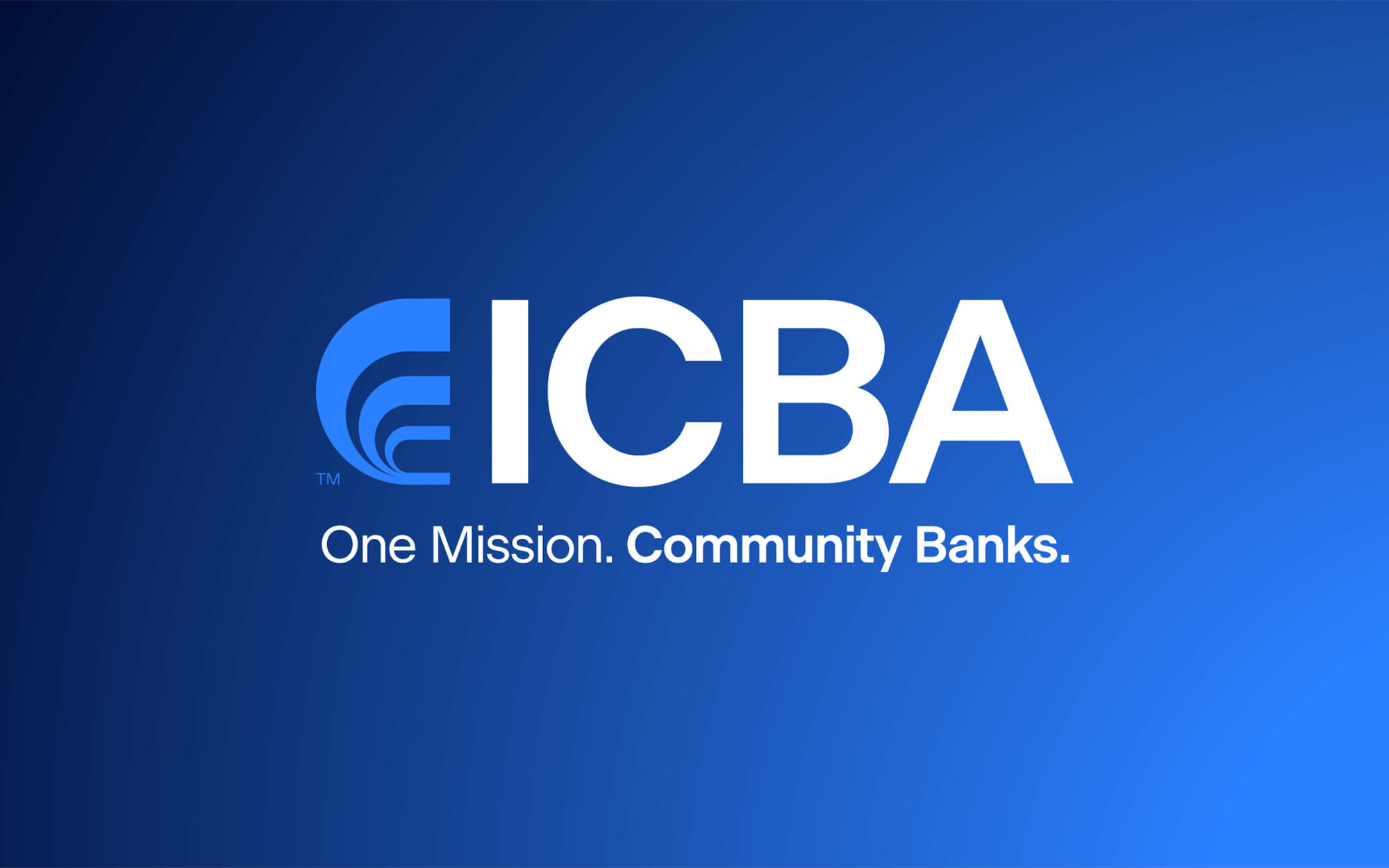When autocomplete results are available use up and down arrows to review and enter to select.
Washington, D.C. (Oct. 11, 2024)—The Independent Community Bankers of America (ICBA) today expressed support for an FDIC proposed rule that would enhance oversight of industrial loan companies, or ILCs. In conjunction with the letter, ICBA also released new polling data showing consumer skepticism with the ILC charter, a legal loophole that allows full-service banks to skirt oversight and violate U.S. policy separating banking and commerce.
In a comment letter today, ICBA commended the FDIC for proposing to strengthen its review of “shell” and “captive” ILCs, including those that rely heavily on parent companies or serve primarily as a funding channel for commercial businesses. In its proposal, the FDIC cites the consumer risks of financial institutions that are inextricably tied to parent organizations experiencing financial stress.
“By helping to address the risks posed by industrial banks, the FDIC’s proposal is a crucial step toward enhancing the integrity and stability of the nation’s banking system,” ICBA President and CEO Rebeca Romero Rainey said today. “But make no mistake — policymakers should close the ILC loophole, which allows large commercial and tech firms to own banks while avoiding regulations that apply to other banks. The bipartisan Close the Shadow Banking Loophole Act would ensure any company that wishes to own a full-service bank is subject to the same oversight that applies to any other bank holding company.”
The FDIC’s increased regulatory scrutiny aligns with recent ICBA polling showing consumer concerns with the ILC loophole. According to the polling of U.S. adults conducted by Morning Consult:
60% — including 64% of Democrats and 63% of Republicans — agree that the ILC charter creates a loophole for companies that are unwilling to comply with the regulations that otherwise apply to banks.
58% — including 64% of Democrats and 57% of Republicans — agree that allowing commercial companies to own banks without being subject to all banking regulations increases risks to the financial system.
57% — including 59% of Democrats and 55% of Republicans — say they would not trust their money and finances with an industrial bank owned by a large tech company.
As ICBA has detailed in a comprehensive white paper, the ILC charter allows applicants’ parent companies to own and operate FDIC-insured banks while evading Bank Holding Company Act regulations that apply to other traditional banks. In addition to creating conflicts of interest, the commercial activities of ILC applicants — which are chartered only in Utah and a few other states — pose risks to the FDIC's Deposit Insurance Fund, the financial system, and consumer privacy.
Fortunately, Congress is working to close the ILC loophole. The ICBA-advocated Close the Shadow Banking Loophole Act (S. 3538), introduced by Senate Banking Committee Chairman Sherrod Brown (D-Ohio) and Sen. John Kennedy (R-La.) and co-sponsored by Sens. Mike Braun (R-Ind.), Bob Casey (D-Pa.), Chris Van Hollen (D-Md.), and Roger Wicker (R-Miss.), would require companies that acquire an ILC to be subject to the same consolidated supervision by the Federal Reserve as any other bank holding company.
Today’s ICBA comment letter is available on its website.
About ICBA
The Independent Community Bankers of America® has one mission: to create and promote an environment where community banks flourish. We power the potential of the nation’s community banks through effective advocacy, education, and innovation.
As local and trusted sources of credit, America’s community banks leverage their relationship-based business model and innovative offerings to channel deposits into the neighborhoods they serve, creating jobs, fostering economic prosperity, and fueling their customers’ financial goals and dreams. For more information, visit ICBA’s website at icba.org.
Previous News
ICBA’s Check Fraud Task Force published a guide that explains the solutions available to community banks to detect instances of check fraud.
ImageOct 11, 2024
ICBA told the federal banking agencies that their proposals to update anti-money-laundering and countering-the-financing-of-terrorism programs would create additional burdens on banks without any demonstrable benefit to combatting money laundering or terror financing.
ImageOct 11, 2024
The Justice Department announced that Citadel Federal Credit Union has agreed to pay more than $6.5 million to resolve allegations that it engaged in lending discrimination by redlining predominantly Black and Hispanic neighborhoods in and around Philadelphia.
ImageOct 11, 2024
Related News Taxonomy
Jul 29, 2025

Jul 17, 2025

Jul 16, 2025
